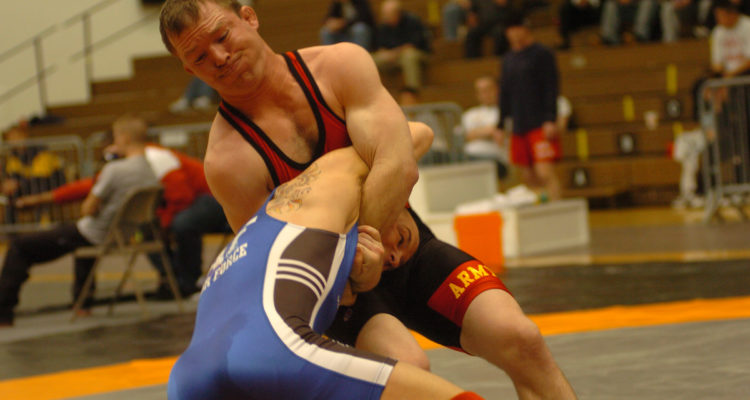I decided to give up Bible teaching and teach wrestling instead. It began a few years ago, during a Wednesday night small group, when one of my eighth grade girls decided it was time for her to share that she thought she was bisexual. Within seconds, the mood of the room changed when one of the other girls reacted by yelling (at the top of her lungs), “The Bible says homosexuality is wrong!” Her voice deepened, and for a moment, I thought she transformed into Christian Bale’s Batman voice. She didn’t just say, “Homosexuality is wrong.” She screamed it while glaring at everyone. This girl barely said four words on any given night. The mood was growing more tense and incredibly weird. I decided it was best to diffuse the situation and not address the bisexual comment. I told them we needed to cool it and speak privately after small group.
The next morning, my boss called me into his office. Actually my boss’ boss called me in for a chat. (That’s when you know it’s bad, right?) I was in trouble because Batman-voice girl went home and told her mom that I wasn’t teaching the Bible. I didn’t respond by saying, “The Bible says…” followed by regurgitating a very clear, “The Bible says…and that settles it” type of response. I was leading an eighth grade girl’s small group at a church that takes a very clear stance against gay marriage and prides itself on its Bible-strong teaching pastor. I was asked to write a two-page statement detailing everything that was said and draft a response about how I was going to teach against homosexuality the following week.
I don’t like the This-settles-it approach to teaching the Bible. Teens learn more effectively when they are invited to be a part of the learning process. Their learning is more effective when they discover, even if we don’t get to the right answer in a 30-minute window. Peter Enns writes, “Ending the debate, getting to the right answer is not the prime directive in the spiritual life. You can tussle with each other and with God [and win], and it’s all good. The back and forth with the Bible is where God is found. Enter the dialogue and you find God waiting for you, laughing with delight, ready to be a part of that back and forth.”1
I remember writing that response and wondering if those eighth grade girls actually learned anything. There was no teaching, no self-discovery, no wrestling with the biblical text, no asking how Jesus would handle this identity crisis if He were in our small group. The eighth-grade girl who shared so openly with us about her sexuality never returned to small group. She didn’t feel safe or comfortable anymore.
I was more than ever convinced it was time to teach wrestling—no canned answers, no This-is-what-I-am-paid-to-tell-you crap—but honest questions in a place for searching, doubting, reading Scripture and asking questions such as:
• What do you think this passage is saying?
• What do you think this meant at the time it was written?
• What do you think it means now?
• What do your parents think about this? Have you asked them?
• What do other Christian faith traditions think about this? Let’s look that up together.
• What can we discover about the ancient cultural context of this passage?
I can teach students all the correct content I want, but unless I teach students how to learn and wrestle with the biblical text themselves, how will they make it through high school science without me, much less college? Wrestling with God about the things that matter most in life is a worthwhile endeavor to practice together in small groups.
I teach wrestling because it isn’t a head full of correct Bible content that saves us. It isn’t the Bible that forgives sins and brings hope to the world. It’s Jesus—an actual Person and the living God. A relationship with the God of creation is the ultimate goal of youth ministry. From what I know about relationships, the best ones are safe places for intense and honest conversations. The best relationships don’t demand My-way-or-the-highway. God likes to wrestle. Ask Jacob. Peter Enns writes, “God has invited us to participate in a wrestling match, a forum for us to be stretched and to grow. Those are the kinds of disciples God desires.”
1 Enns, P. (2014). The Bible Tells Me So: Why Defending Scripture Has Made Us Unable to Read It (p. 242). HarperOne.
2 Enns, P. (2014). The Bible Tells Me So: Why Defending Scripture Has Made Us Unable to Read It (p. 20). HarperOne.




